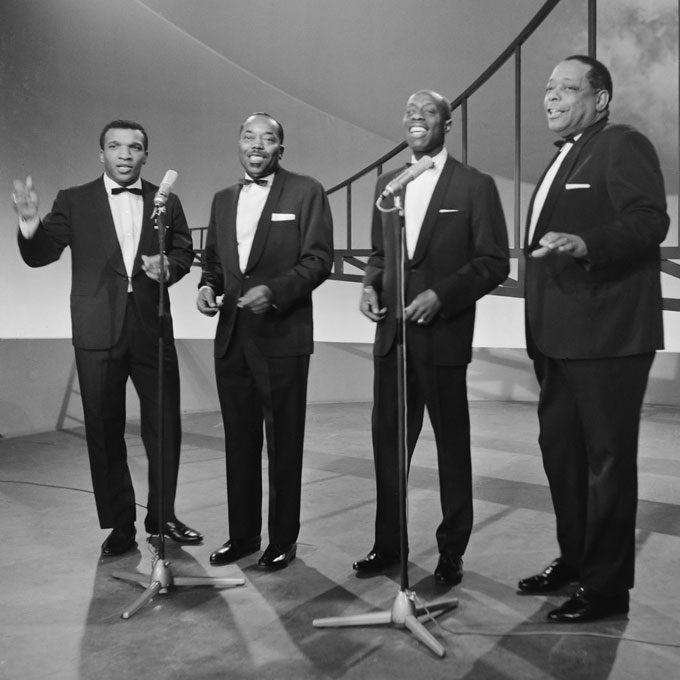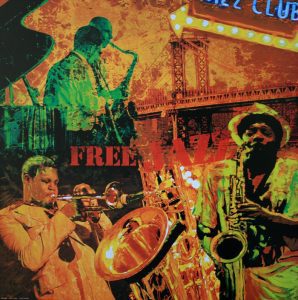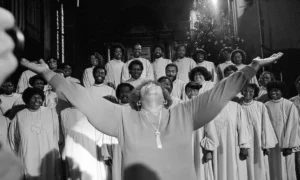Jubilee Quartets in the World of HBCUs

What is a Jubilee Quartet?
There is much scpeculation regarding where the Jubilee Quartet originated from, but it is certain that there is a rich history. Originally Jubilee Quartets were comprised of 4 or more men with various voice patterns and singing styles. It was common to see a soloist who did much of the heavy lifting and was essentially the main attraction. In the beginning they sang a lot of negro spirituals but over the years as the influence spread, the music style did as well.
Fisk Jubilee Quartet
Fisk University, in 1871 created the first known Jubilee Quartet. The quartet was founded and lead by George L. White. White was the choir director at Fisk, as well as held a prominent position within the University’s administration. The school found that they were in dire need of funds and promotion and forming this group was a way to bring in money. A bonus to creating this group was that it gave Black men a vehicle to express their musical talent by singing negro spirituals. The Fisk Jubilee Quartet became very lucrative and white made the program permanent, naming it “Fisk Jubilee Singers”
Jubilee Quartets and Their Impact on HBCUs
As the years continued on more HBCus started adopting the concept of Quartets within their music programs. Fisk influenced the HBCU community because of the income that was being generated by their choir and it motivated other schools to do the same. Schools like Hampton and Morehouse College were the first to create their own version of jubilee quartets. Back then it continued to be majority male, but as the years developed, Women were introduced to the Jubilee Quartet world. During the present day, HBCUs have progressed into having competitive travel choirs and glee clubs for their entire student body to try out. Though they might not have the same amount of people as a Quartet or only sing negro spirituals, there are still strong similarities. Spelman College’s own Glee Club draws from the teachings of the Fisk Jubilee singers. It is important to keep this story alive because it jumpstarted a very important part of HBCU culture.
Works Cited
https://www.npr.org/2011/02/26/134028602/at-fisk-university-a-tradition-of-spirituals

The History Of Jazz
In this course I learned the Roots of the music genre Jazz. This consisted of learning the different styles that emerged from Jazz such as:

Free Jazz – Albert Tyler’s “Spiritual Unity”
Spiritual Unity Breakdown Track 1 & 4- Ghosts Track 2 – The Wizard Track 3 – Spirits Track 5 – Vibrations Overall Listening to this

Max Roach – Bebop Musician
Maxwell or Max Roach was born on January 10, 1924 in NewLand North Carolina. Seeking better opportunities his parents moved Roach and his family to

Whack World: Genius of Tierra Whack- Imani Blue
/*! elementor – v3.18.0 – 08-12-2023 */ .elementor-heading-title{padding:0;margin:0;line-height:1}.elementor-widget-heading .elementor-heading-title[class*=elementor-size-]>a{color:inherit;font-size:inherit;line-height:inherit}.elementor-widget-heading .elementor-heading-title.elementor-size-small{font-size:15px}.elementor-widget-heading .elementor-heading-title.elementor-size-medium{font-size:19px}.elementor-widget-heading .elementor-heading-title.elementor-size-large{font-size:29px}.elementor-widget-heading .elementor-heading-title.elementor-size-xl{font-size:39px}.elementor-widget-heading .elementor-heading-title.elementor-size-xxl{font-size:59px} Who is Tierra Whack? Tierra Whack, a Grammy nominee, Double-XXL freshman,

Jazz as a Catalyst for Social Change: A Harmonious Connection – Imani Blue
/*! elementor – v3.18.0 – 08-12-2023 */ .elementor-heading-title{padding:0;margin:0;line-height:1}.elementor-widget-heading .elementor-heading-title[class*=elementor-size-]>a{color:inherit;font-size:inherit;line-height:inherit}.elementor-widget-heading .elementor-heading-title.elementor-size-small{font-size:15px}.elementor-widget-heading .elementor-heading-title.elementor-size-medium{font-size:19px}.elementor-widget-heading .elementor-heading-title.elementor-size-large{font-size:29px}.elementor-widget-heading .elementor-heading-title.elementor-size-xl{font-size:39px}.elementor-widget-heading .elementor-heading-title.elementor-size-xxl{font-size:59px} Origins of Jazz Picture this: The dawn of the 20th century,

Evolution of Black Gospel Music: A Comparative Analysis with Contemporary Gospel -Imani Blue
Black gospel music is deeply intertwined with the African-American experience, having evolved into a compelling and influential genre within the broader spectrum of gospel music.

